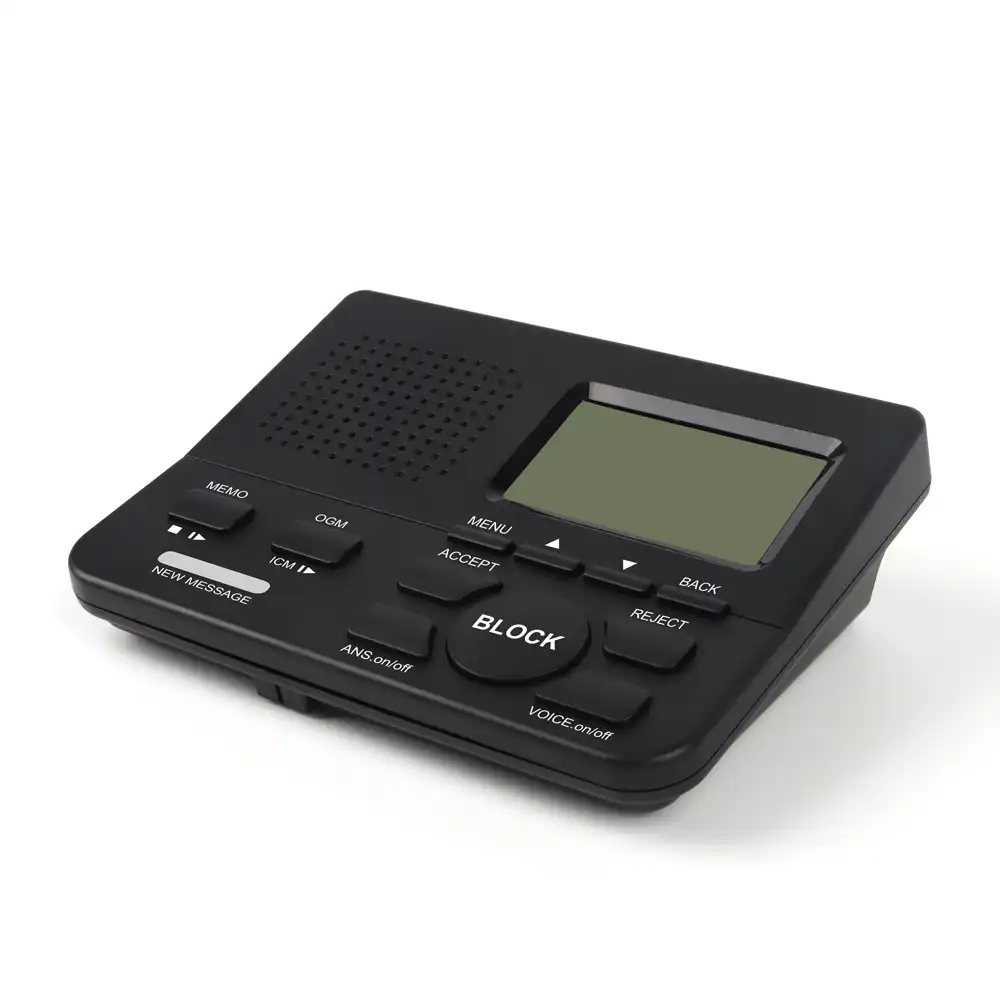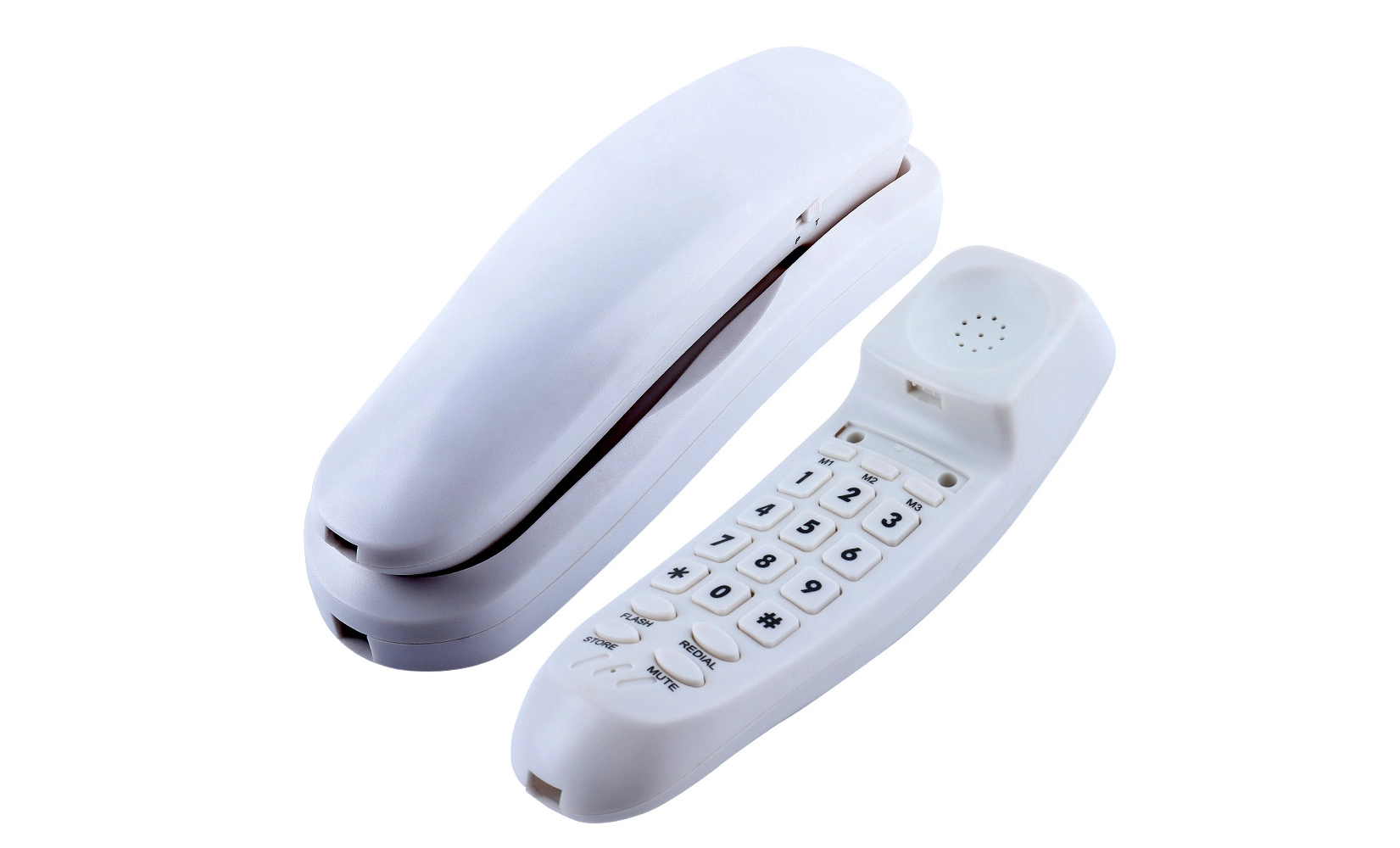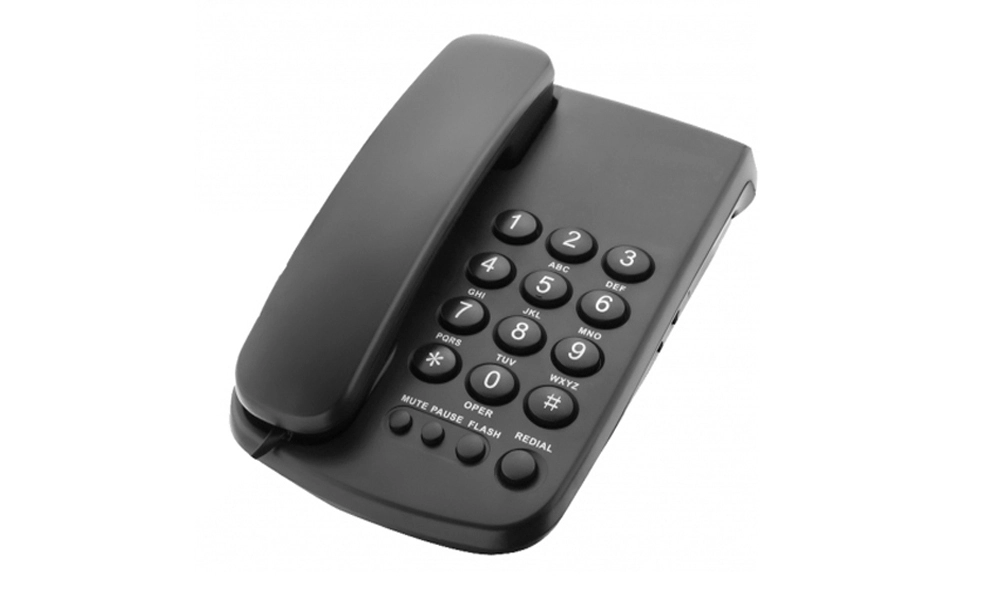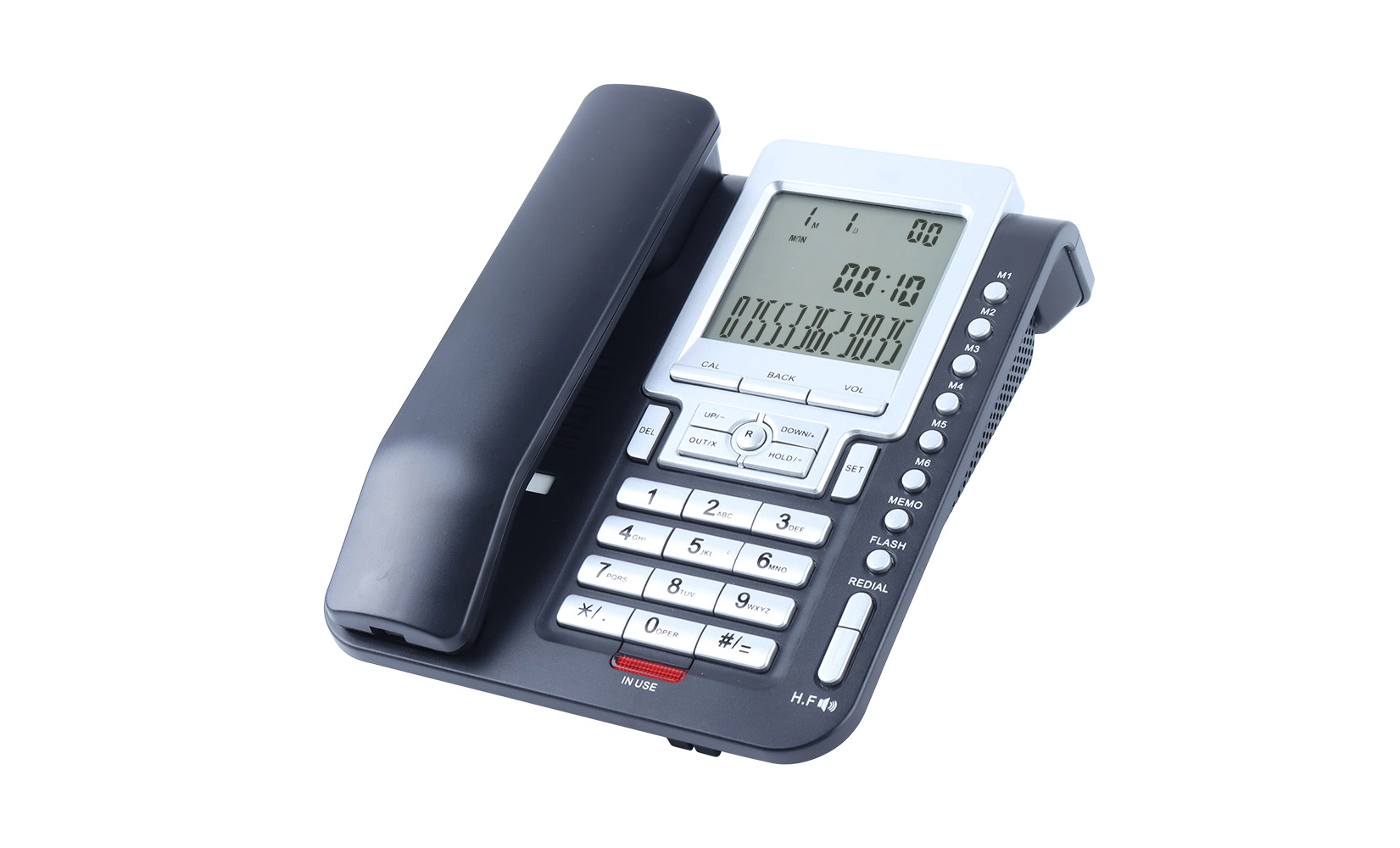How Call Blocking Protects Business Privacy?
 Call blocking telephone the privacy of businesses by letting them effectively manage incoming calls. A call-blocking telephone works as a digital guardian, blocking calls from telemarketers, scams, and other bothersome sources. Businesses can keep their workers focused, keep private data safe, and boost total output with this technology. Companies can make a safe communication system that favors valid calls and blocks calls that could be threats to their privacy and operations by using advanced call blocking features.
Call blocking telephone the privacy of businesses by letting them effectively manage incoming calls. A call-blocking telephone works as a digital guardian, blocking calls from telemarketers, scams, and other bothersome sources. Businesses can keep their workers focused, keep private data safe, and boost total output with this technology. Companies can make a safe communication system that favors valid calls and blocks calls that could be threats to their privacy and operations by using advanced call blocking features.
The Evolution of Call Blocking Technology in Business Communications
Telephone interactions for businesses have changed a lot over the years, and call blocking technology has become an important part of keeping company secrets safe. As phone technology improved, so did the need for more advanced ways to handle receiving calls. Call stopping systems in the past were very basic and relied on simple blacklists or user input. But the digital change brought about a new era of smart ways to block calls.
In order to find and block annoying calls, modern call blocking telephones use sophisticated algorithms and machine learning. These systems can look at trends of calls, spot odd number sequences, and even find fake caller IDs. This technology has changed over time because phone scams are getting more complicated and companies are getting more automatic robocalls.
Key Milestones in Call Blocking Innovation
Several important steps have been taken along the way for call stopping technology:
• The creation of customizable blocklists for handling known annoying numbers
• The introduction of caller ID systems that let businesses visually screen calls
• Using cloud-based systems to share and update information about spam calls
• Using real-time call analysis to find and block scam calls right away
• Using voice recognition technology to find and block automatic messages
Call-blocking telephones have become effective tools for safeguarding business privacy as a result of these developments. Now, businesses can customize their call management strategies to meet their unique needs. This makes them much more resistant to unwanted intrusions.
Implementing Effective Call Blocking Strategies for Enhanced Business Security
Businesses need to be smart about how they use call stopping technology to get the most out of it. A good call blocking strategy includes more than just getting a call blocking telephone; it also includes a thorough plan that fits the company's communication needs and security standards.
Key Components of a Robust Call Blocking Strategy
A well-thought-out plan for stopping calls should include the following:
• Regular changes to whitelists and blocklists to keep them up to date
• Integration with existing phone systems and CRM software to make things run smoothly
• Training for employees on how to use call blocking features and protocols correctly
• Regularly going over and analyzing call logs to find new patterns or threats
• Call blocking options that can be changed to fit the needs of each section and the amount of sensitivity
As risks and communication habits change, companies can make a call stopping system that is dynamic and flexible by adding these parts. The call blocking telephone will continue to be a useful tool for protecting business privacy thanks to this proactive method.
Balancing Accessibility with Security
It's important to block calls strongly for privacy reasons, but it's also important to let authorized people through. Businesses need to find a mix between strict stopping rules and the need to keep important interactions open. To find this balance, you can:
• Set different levels of stopping based on how important the call is and where it came from
• Using voicemail recording services to listen to notes from banned numbers
• Giving important partners other ways to get in touch
• Reviewing and changing stopping criteria on a regular basis to cut down on false results
By carefully tweaking their call stopping methods, companies can make a safe space for conversation that only the right people can access.
 The Future of Call Blocking: AI and Machine Learning Innovations
The Future of Call Blocking: AI and Machine Learning Innovations
When we look to the future, we can see that call stopping technology is going to get even better. Machine Learning (ML) and Artificial Intelligence (AI) are going to change the way companies handle calls to protect their privacy. These technologies promise to make call stopping systems more accurate and flexible than ever before.
Emerging AI-Powered Call Blocking Features
A number of AI-powered features are anticipated to be included in the next version of call blocking telephones, including:
• Predictive call analysis to spot and stop possible threats before they happen
• Natural language processing to figure out what voice messages are about and why they were sent
• Adaptive learning algorithms that make banning more accurate based on user feedback
• Integration with IoT devices to help people understand their surroundings and make better decisions
• Sentiment analysis to find emotional cues in voice calls for better screening
With these new technologies, companies will be able to make even better and more effective walls against annoying calls, which will protect their privacy and make their operations run more smoothly.
The Role of Big Data in Enhancing Call Blocking Efficacy
Big data analytics will be a very important part of how call stopping technology changes over time. Call stopping systems will get better at finding new threats and trends as they collect and analyze huge amounts of call data from many different sources. This data-driven approach will allow:
• Businesses and telecom providers to share real-time threat intelligence
• Predictive modeling to spot new scams and robocall trends
• Customized blocking profiles based on business needs and past data
• Constant optimization of blocking algorithms to make them more accurate and reduce false positives
Businesses can anticipate that as these technologies advance, their call-blocking telephones will become even more effective protectors of their privacy and communication integrity.
Conclusion
Call stopping technology is now an important part of any business that wants to keep their operations running smoothly and protect their privacy. From its simple roots to the high-tech AI-powered systems that are on the way, call blocking telephone has changed over time to keep up with the constantly evolving threats to telecommunications. Businesses can make a safe place to communicate that boosts productivity and keeps private data safe by using strong call stopping methods and keeping up with new technologies.
Call blocking will be even more useful in the future when AI, machine learning, and big data analytics are all used together. These new ideas will not only make it easier to block annoying calls, but they will also give us useful information about how people talk to each other and where they might be weak. Businesses that are open to these changes and make the necessary changes to their strategies will be ready for the communication problems of the future while still protecting their operations' privacy and security.
FAQ
How does a telephone that blocks calls tell the difference between real calls and spam calls?
Caller ID verification, pattern recognition, and database cross-referencing are just a few of the techniques used by call stopping telephones to tell the difference between real and fake calls.
Can technology that blocks calls be changed to fit the needs of a business?
Yes, most current systems for stopping calls have features that can be changed to fit the needs and tastes of each business.
Are there any legal things to think about when stopping calls in a work setting?
Businesses should be aware of the rules that apply to their phone systems and make sure that the way they block calls doesn't break any local laws about privacy and managing calls.
Protect Your Business with Advanced Call Blocking Solutions | CHEETA
At CHEETA, we know how important it is to handle calls properly in order to protect business privacy. The changing needs of contemporary companies are met by our cutting-edge call blocking telephones. Our plant in Shenzhen has been doing OEM/ODM work for more than 18 years and makes stable, high-quality transmission devices that meet CE and ROHS standards. Our top engineers are always making our goods better based on feedback from users around the world. This keeps our call blocking solutions up to date with new threats. For businesses seeking customized call blocking telephones tailored to their specific requirements, contact our sales team at allen@cheeta.com.cn to explore how CHEETA can enhance your communication security.

References
1. Smith, J. (2022). "The Impact of Call Blocking Technology on Business Privacy." Journal of Telecommunications Security, 15(3), 78-92.
2. Johnson, A. & Brown, L. (2023). "Advancements in AI-Driven Call Filtering Systems for Corporate Use." International Conference on Business Communication Technologies, 45-57.
3. Telecom Regulatory Authority. (2021). "Guidelines for Implementing Call Blocking in Business Environments." Regulatory Framework Document.
4. Chen, W. et al. (2023). "Machine Learning Algorithms in Next-Generation Call Screening Devices." IEEE Transactions on Communication Systems, 41(2), 312-325.
5. Davis, R. (2022). "The Economic Benefits of Effective Call Blocking for Small to Medium Enterprises." Business Efficiency Quarterly, 28(4), 103-118.

Kindly inform us your interested product and your detailed requirement, so that we can give you a best suggestion.

Shenzhen Cheeta Technology Co., Ltd – Leading Communication Telephone Manufacturer



